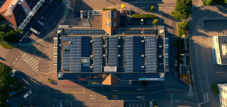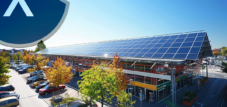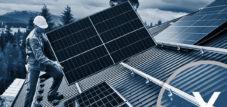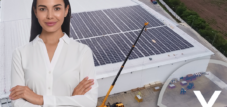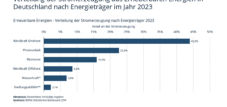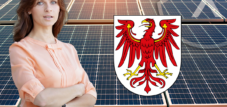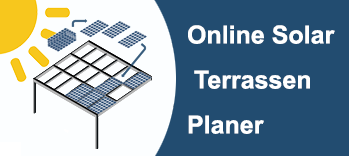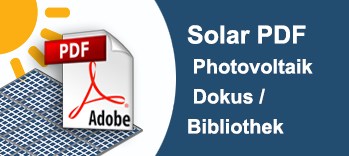Potential of 90 percent: Why there are hardly any solar systems on commercial roofs, warehouses and industrial buildings
Language selection 📢
Published on: October 13, 2024 / update from: October 16, 2024 - Author: Konrad Wolfenstein
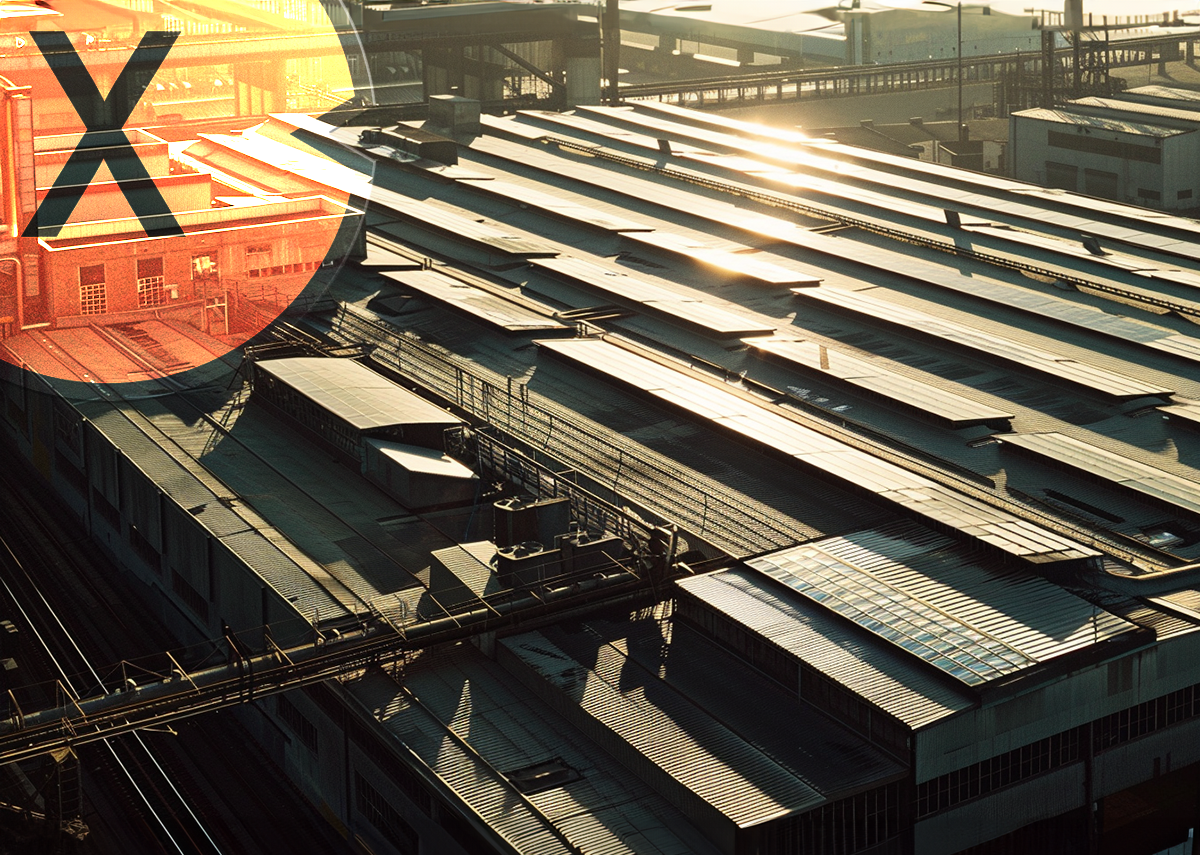
Potential of 90 percent: Why there are hardly any solar systems on commercial roofs, warehouses and industrial buildings - Image: Xpert.Digital
⚡🏬 90% untapped potential: Challenges when installing solar systems on commercial buildings
🌞 Potential of solar systems on commercial roofs in Germany
In Germany there is enormous potential for the use of solar systems on the roofs of warehouses, supermarkets and industrial buildings. While solar systems on private homes are now widespread, the roofs of commercial buildings remain largely unused. This is surprising considering that only about ten percent of available commercial space is covered by solar panels. This means that around 90 percent of the potential space is still unused. But why is it so difficult to exploit this potential?
⚠️ Challenges of installing solar systems on commercial buildings
💡Complex ownership relationships
A key reason for the low use of solar systems on commercial roofs is the complex ownership structure. In the case of single-family homes, the building owner and the electricity consumer are usually the same person. In contrast, commercial properties are often owned by real estate funds or other investors, while the companies that would use the electricity are just tenants. To install a solar system, the owner must agree and sign the contract. This requires coordination between at least three parties: the owner, the tenant and the installer of the solar system. These multi-party negotiations can be lengthy and complicated.
🛠️ Challenges in planning and implementation
Planning solar systems on large commercial roofs is also a challenge. The size and structure of these roofs often require tailored solutions that are more complex than smaller private roofs. Safety and building regulations must also be adhered to, which means additional planning work.
⚡ Network capacity and infrastructure problems
Another obstacle is the existing power grid. Many large systems cannot simply be connected to the power grid because its capacities are often already exhausted. Expanding the power grid can take up to ten years and requires extensive approval procedures and high costs. There are 850 distribution network operators in Germany, each of which has its own application rules. This diversity makes it considerably more difficult to standardize the procedures.
💡 Solutions and future perspectives
📈 Funding programs and incentives
In order to better exploit the potential of solar systems on commercial roofs, targeted support programs and financial incentives could help. These could aim to reduce investment costs for owners while offering attractive returns. Tax advantages could also create an incentive.
📄 Simplifying approval procedures
Simplifying and standardizing approval procedures could also help speed up the installation of solar systems. A single point of contact for approvals could make the process more efficient and reduce uncertainty.
🔋 Innovative technologies
New technologies could also play a role in overcoming the challenges of installing solar systems. For example, advanced energy storage systems could help solve the problem of grid capacity by storing excess energy and releasing it when needed.
🌍 The importance of the energy transition
The use of solar systems on commercial roofs not only makes sense from an economic perspective, but is also an important step towards the energy transition. The production of renewable energy contributes to reducing CO2 emissions and helps Germany achieve its climate goals. It can also help stabilize energy supplies by reducing dependence on fossil fuels.
🏭 Commercial roofs in Germany have enormous potential
Although there are numerous challenges, installing solar systems on commercial roofs in Germany offers enormous potential to increase the use of renewable energy. This potential can be tapped through targeted measures to overcome existing obstacles. Increased cooperation between politics, business and energy suppliers is necessary to develop and implement innovative solutions. Ultimately, this could not only bring economic benefits, but also make an important contribution to sustainable energy supply.
📣 Similar topics
- 📈 Potential of solar systems on commercial roofs in Germany
- 🏢 Challenges when installing solar systems on commercial buildings
- ⚙️ Complex ownership relationships in the solar industry
- 💰 Financial incentives for solar systems on commercial roofs
- 🌍 Energy transition and solar systems: A contribution to sustainability
- 🔌 Network capacities: Obstacles for large-scale systems in Germany
- 🏭 Innovative technologies to optimize solar usage
- 📄 Simplifying the approval process for solar systems
- ⚡ The importance of renewable energies in the economy
- 🔍 Future prospects for solar systems on commercial properties
#️⃣ Hashtags: #solar systems #energy transition #sustainability #commercial spaces #renewableenergies
🎯🎯🎯 Benefit from Xpert.Digital's extensive, fivefold expertise in a comprehensive service package | R&D, XR, PR & SEM

AI & XR 3D Rendering Machine: Fivefold expertise from Xpert.Digital in a comprehensive service package, R&D XR, PR & SEM - Image: Xpert.Digital
Xpert.Digital has in-depth knowledge of various industries. This allows us to develop tailor-made strategies that are tailored precisely to the requirements and challenges of your specific market segment. By continually analyzing market trends and following industry developments, we can act with foresight and offer innovative solutions. Through the combination of experience and knowledge, we generate added value and give our customers a decisive competitive advantage.
More about it here:
💼 Efficient approaches to improving solar system planning
🔧 Strategies for optimizing photovoltaic projects on commercial areas
The planning of solar systems on commercial areas can be improved through various measures and approaches. Here are some key points to consider:
🛠️ Optimization of planning and implementation
💻 Digital tools and technologies
The use of digital tools can make planning photovoltaic projects much easier. These tools enable precise analysis of roof surfaces, taking into account factors such as slope, shading and load-bearing capacity, and help create realistic yield forecasts.
⚙️ Standardization of processes
Standardizing approval procedures and technical requirements could speed up the planning process. A clear and uniform regulation at national level would offer companies planning security and reduce administrative hurdles.
🔧 Technical and economic aspects
👷♂️ Technical expertise
Installing solar systems requires specific technical knowledge, especially for large industrial buildings. Training professionals and working with experienced installation companies are crucial to overcoming technical challenges.
💰 Economic incentives
Financial support, such as increased feed-in tariffs or tax breaks, can make investments in photovoltaic systems more attractive. Such incentives help reduce initial investment costs and shorten the payback period.
🏛️ Regulatory framework
📜 Simplified approval processes
Reducing bureaucratic hurdles through simplified approval procedures can promote the expansion of solar systems. This also includes adapting building use regulations to make it easier to use commercial and industrial areas for photovoltaics.
📈 Funding programs
State funding programs can be tailored specifically to the needs of commercial properties to support the expansion of solar systems. These programs should be regularly reviewed and adjusted to current market conditions.
🌅 Future prospects
🔋 Integration of energy storage systems
The combination of photovoltaic systems with modern energy storage systems can increase independence from external power grids and optimize energy management. This enables more flexible use of the electricity generated and can contribute to the stability of the power grid.
🌱 Sustainable energy supply
In the long term, investing in photovoltaic systems not only offers economic advantages, but also contributes to achieving climate goals. Companies can reduce their CO2 emissions and achieve their sustainability goals by relying on renewable energy.
A combination of these approaches can overcome the challenges of planning and implementing solar systems on commercial areas. This would not only contribute to the energy transition, but also create economic benefits for companies.
📣 Similar topics
- 🌞 Improving the planning of solar systems on commercial areas
- 💻 Digital tools for optimizing photovoltaic projects
- 🔧 Standardization of approval procedures for solar systems
- 📈 Economic incentives to promote solar system installations
- 🛠️ Technical expertise: Key to successful solar system installation
- 📝 Simplified approval procedures for faster expansion of solar systems
- 🌍 Future prospects for the use of renewable energies in companies
- 📊 Integration of energy storage systems for sustainable energy supply
- 🏭 Regulatory framework for photovoltaics on commercial areas
- 🌱 Advantages of government funding programs for solar systems on commercial properties
#️⃣ Hashtags: #solar systems #energy transition #sustainability #support programs #photovoltaics
We are there for you - advice - planning - implementation - project management
☑️ Industry expert, here with his own Xpert.Digital industry hub with over 2,500 specialist articles
I would be happy to serve as your personal advisor.
You can contact me by filling out the contact form below or simply call me on +49 89 89 674 804 (Munich) .
I'm looking forward to our joint project.
Xpert.Digital - Konrad Wolfenstein
Xpert.Digital is a hub for industry with a focus on digitalization, mechanical engineering, logistics/intralogistics and photovoltaics.
With our 360° business development solution, we support well-known companies from new business to after sales.
Market intelligence, smarketing, marketing automation, content development, PR, mail campaigns, personalized social media and lead nurturing are part of our digital tools.
You can find out more at: www.xpert.digital - www.xpert.solar - www.xpert.plus






